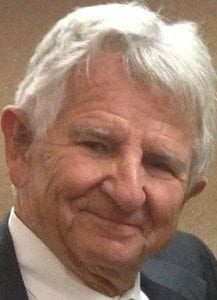BY JOSEPH H. CARTER SR.
 The fifth resolution before the U.S. House of Representatives in its first meeting during January was overwhelmingly defeated by a pure party-line vote of 238 Republicans voting “no” and 160 Democrats voting “yes.”
The fifth resolution before the U.S. House of Representatives in its first meeting during January was overwhelmingly defeated by a pure party-line vote of 238 Republicans voting “no” and 160 Democrats voting “yes.”
The issue affected the five “non-voting” members of the House representing U.S. Territories and the District of Columbia. House Res. 5 amended rules giving those five the right to vote on final passage of bills along with the 435 Congressmen representing the 50 states.
In defeating the measure, more than four million persons living under federal laws remain without a vote in either the U.S. Senate or U.S. House of Representatives on matters that affect them the same as all other tax-paying American citizens.
Extending democracy to areas under total control of federal laws long has been championed by Democrats and, in recent years, fought by Republicans.
A study shows that four of the five “non-voting delegates” are Democrats. Non-voting Rep. Luis Fortuno of Puerto Rico is a Republican just like the majority of other sitting U.S. Congressmen who are allowed to vote on laws impacting their constituents.
While the “non-voting” delegate concept was started in 1794 with a member from areas of the Western USA that expected to become states, the question of allowing votes by House members from the Territories and District of Columbia remains a modern partisan issue these 220 years later.
Republicans long have led the denial. Extending the right to vote was once described by current GOP Speaker John Boehner as “an outrageous grab of power of power by the majority” back when Democrats were in power. At the same time in contrast, Missouri Republican Roy Blunt said denying the votes amounted to “representation without taxation.” Blunt was correct.
Beyond Fortuno, the other delegates – all Democrats – are:
– Eni Faleomavaega of American Samoa a U.S. Army veteran who has been a delegate for quarter century rising to chair of the Subcommittee on Asia and the Pacific in Foreign Affairs but he cannot vote on bills his subcommittee passed when the measure reaches the House floor;
– Eleanor Holmes Norton, delegate for the District Columbia, is a Yale-educated lawyer who champions statehood for the nation’s capital giving it two U.S. Senators added along with a proportionate number of voting House members. In varying degrees, Congress repeatedly has vetoed decisions reached by locally elected officials. Statehood is an old issue long denied people residing in Washington, D C.
– Madeleine Bordallo, a Minnesota native who married the former governor of Guam, is a 12-year House member who can cast votes as a member of the Armed Services Committee but cannot vote when the same bills reach the floor of the House;
– Donna Marie Christian-Christenson (nee Donna Christian-Green) has served 18 years as delegate from the Virgin Islands. Born in New Jersey, she is a medical doctor and former health commissioner of the islands who also was a television journalist.
During the 1970s when I served as research assistant to the appropriations subcommittee chair who funded the trust territories among programs in the District of Columbia and beyond, providing even non-voting delegates representing these areas was a hot issue with Congress that moved slowly to correct the inequity. Even today with five non-voting delegates, “taxation without representation” is a legitimate complaint by more than four million tax-paying citizens living under laws of the United States of America. A question of justice, equity and a tragic puzzle in our Democracy, no doubt.
– Joseph H. Carter Sr. is a regular contributor to The Oklahoma Observer. Reared in west Tulsa in the 1930-50s era, he is author of the Never Met A Man I Didn’t Like: The Life and Writings of Will Rogers [HarperCollins] and The Quotable Will Rogers [Gibbs Smith Publishers].







